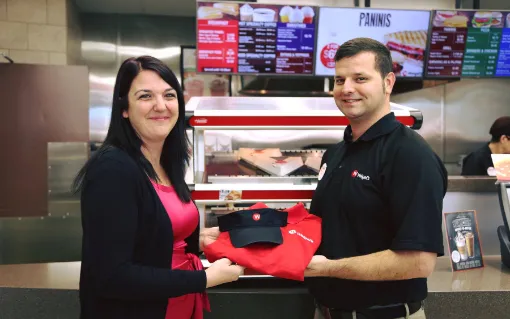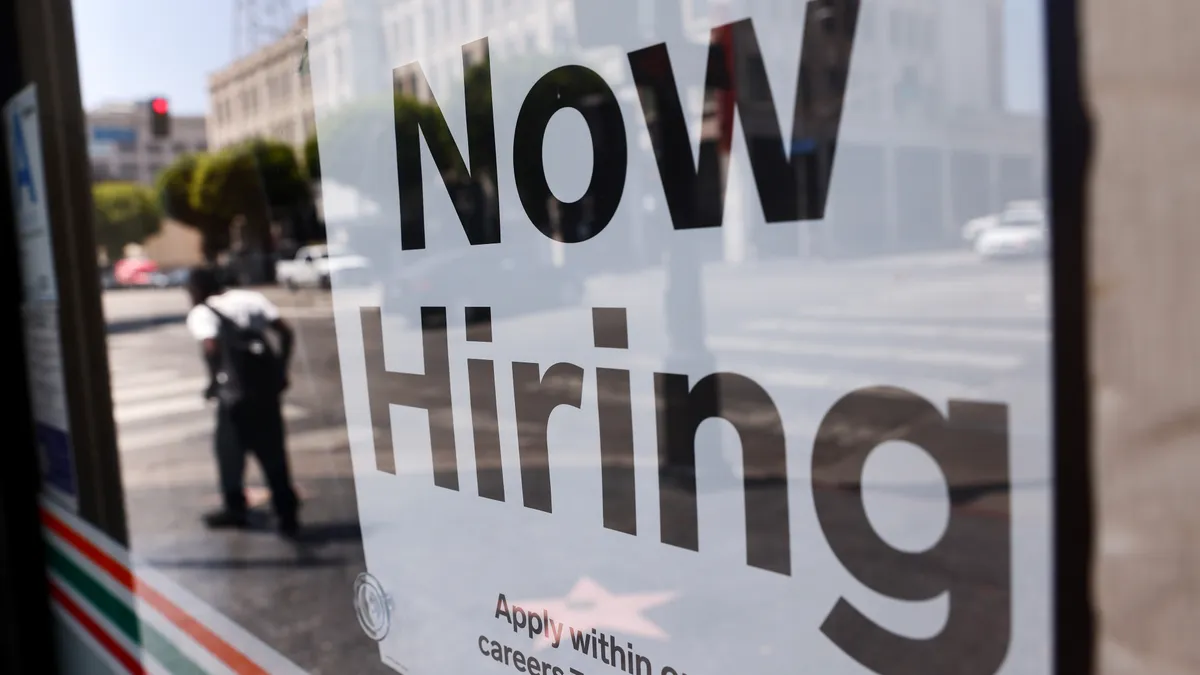For c-stores, store managers play a crucial role in what’s become a pitched war for frontline talent — one that has been greatly influenced by the COVID-19 pandemic, which has spurred many retail employees to seek jobs elsewhere.
In 2021, overall staff turnover reached 150% — its highest level since 2012, according to NACS’ most recent State of the Industry Compensation Report.
“Attracting and retaining talent is harder than ever,” said Josh Ciampini, vice president of operational excellence at retail workforce management firm Logile, citing staffing shortages across the industry.
A good store manager is invaluable in helping c-stores find and retain talent, and can keep operations steady through the highs and lows of staffing, Ciampini said. This makes it imperative for companies to find and hold onto quality managers — though doing so can be very difficult since store managers have also been leaving their jobs in recent years.
“How do I create that environment that can operate regardless of people filtering in and out? I need to have that experienced store manager, and those are really few and far between,” Ciampini said.
Lessons from the pandemic have forced Powell, Tennessee-based c-store chain Weigel’s to re-evaluate and refashion how it hires from within the company as well as outside, and how it encourages store managers to stay.
“A lot of it is supporting them in every way we can," said Melanie Wilson Disney, director of human resources for Weigel’s, which has nearly 1,300 employees..
Whereas five years ago, money or career growth was top-of-mind for store managers, work-life balance now takes precedence. Weigel’s managers have a very flexible schedule, Disney said. For example, some store managers come in early in the morning and then are able to leave in the afternoon to pick up their kids from school.
Disney said that by offering flexible schedules and competitive compensation, along with other practices, the company’s managers are staying put. It is not actively seeking new managers.
“We are trying to retain the managers we have and make their jobs easier,” Disney noted.
As c-stores look to improve their hiring and retention practices for store employees, they first need to examine the way they’re identifying, hiring and holding on to their store mangers, sources said.
Identifying potential managers, both inside and outside the company
When scouting for potential store managers within the company, key qualities and skills to look for include the ability to collaborate with others, communicate well and utilize technology, according to Ciampini.
One of the biggest mistakes is promoting an employee who is a “really good doer” to the store management role, Ciampini said. “When things get busy, the doer’s default is to doing. They need to be directing what is going on.”

It’s also important for c-stores to recognize that the growth of technology and automated systems allows individuals who do not have years of store experience to still be good managers, Ciampini said.
“Someone who doesn’t know how to run everything in the store has the ability to automate scheduling, for example,” he said. “We don’t need to rely on you instinctively knowing the best way to schedule.”
While internal management candidates often come with built-in knowledge about company culture and operations, it’s not always possible to hire from within. One of the best places to find new c-store managers is at grocery stores and restaurants, according to Ciampini, since c-stores are becoming more like restaurants and many are already “like mini grocery stores.”
For example, a c-store owner could recruit a produce department manager from a grocery store, Ciampini said. “They could see it as a step up and a step they could take faster then getting to assistant store manager or manager at the grocery store.”
Steve Montgomery, president of consulting firm b2b Solutions, said some of the best candidates are not always the ones with years of industry experience.
“Look for potential more than past c-store experience,” he said.
To locate quality candidates, c-stores should utilize job websites as well as social media and professional networking. Ideally, companies will have an HR employee focused solely on recruitment, Montgomery added.
Owners should be transparent about what the company’s career ladder looks like along with compensation plans, he added. To stay competitive with other employers, c-stores should offer a variety of incentives — and make those incentives clear — including hiring bonuses, flexible scheduling, company paid health plans and paid sick days. Operators should provide incentives for staying 30 days, 60 days and 90 days, Montgomery advised.
Training and retaining managers
Securing a strong store manager is an important step for c-store owners, but it can be undone if they fail to implement sharp training and retention policies.
Ciampini said it’s important for c-store owners to begin training store managers before they actually step into that role. He advised building in multiple tiers of store leadership up to store manager. “It allows you to identify individuals who may want to stick around longer,” he said.
Montgomery noted that “it is critical to build a strong assistant store manager bench and then determine individual training to prepare employees for their next opportunity.”

Shadowing other store managers or learning at a “manager’s university” is essential to the growth of current as well as potential managers, Ciampini said.
“Does the organization have any concept of a manager's university…where someone who is mid-level could be candidate and could go and train how to be a manager and not just be a doer?” he noted.
To bolster its training culture and leadership pipeline, last year, Weigel’s opened Weigel’s University on its corporate campus.
“We have a job training room to further people’s development on leadership. Those who could eventually be a store leader, such as team lead assistants, can attend those classes and we get a lot of those who turn out. They can see what leadership is all about,” Disney said.
Technology is ever-changing, so keeping managers trained and informed on point-of-sale systems enables closer management of theft prevention, cash management and employee scheduling, Montgomery noted. And as foodservice continues to grow in importance, store managers must be trained in all aspects of food operations, including food safety, he added.
New store managers should also have a dedicated senior store manager assigned to them for the first 90 days, Montgomery advised.
C-store operators should strive to recognize managers when they have strong performance, according to Montgomery. “It must be structured and very much a big deal,” he said.
Becoming a mentor is another step upward for store managers, Montgomery said. They can earn additional pay and bonuses for training and guiding new managers.
Ultimately, c-store operators need to have a clear system in place for recognizing and developing talent, with plenty of support for the role, particularly at the start. Store managers who go through a strained start or encounter the “baptism through fire” start never last or are not very successful, according to Montgomery.
“You can read books and spend a lot of money, but you have to keep your finger on the pulse of what they need right now,” said Disney.






















